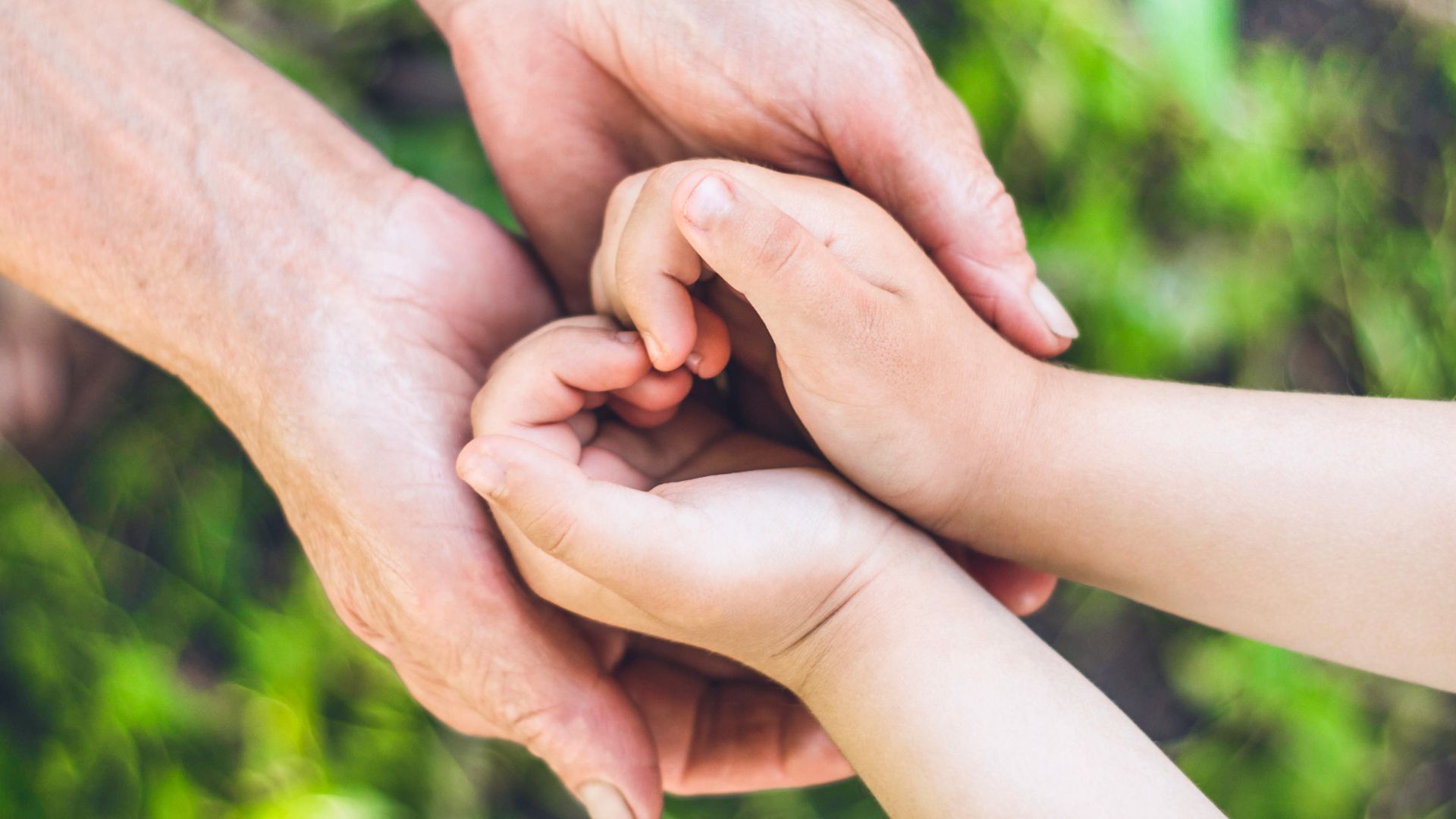
Corporal punishment, including spanking, happens when parents use physical punishment (usually hitting the child on the backside but occasionally elsewhere), with the hope that this ‘disciplinary action’ will improve the child’s behavior.
What happens in reality, however, is quite different. In fact, spanking may actually increase aggression and other undesirable behaviors in children.
In this Q&A about corporal punishment, we’ll delve into the research and address many of the questions parents and caregivers have personally asked us. We'll respond to each of them based on extensive research about healthy child development.
Q: Is corporal punishment ever appropriate discipline?
A: No. According to the American Psychological Association, spanking is not only ineffective, but also harmful to the developing child.
"...In the meta-analysis, researchers Elizabeth Gershoff and Andrew Grogan-Kaylor from the University of Texas at Austin and the University of Michigan, respectively, evaluated 75 published studies on the relationship between spanking by parents and various behavioral, emotional, cognitive and physical outcomes among their kids. They found that spanking was associated with 13 out of a total of 17 negative outcomes they assessed, including increased aggression and behavioral and mental health problems as well as reduced cognitive ability and self-esteem..." – Melinda Wenner Moyer, Scientific American
Additionally, the American Academy of Pediatrics offers this:
"Parents and other adult caregivers should use effective discipline strategies for children that do not involve spanking, other forms of corporal punishment or verbal shaming. The guidance is part of an updated policy statement in which the Academy strengthens its opposition to corporal punishment. The policy Effective Discipline to Raise Healthy Children, from the Council on Child Abuse and Neglect and the Committee on Psychosocial Aspects of Child and Family Health, is available here..." – Robert D. Sege, M.D., Ph.D., FAAP, American Academy of Pediatrics
It is now widely accepted that corporal punishment may increase the risk of future trauma for the child and potentially even lower their IQ. You can read more about the
effects of spanking here as well as throughout this article.
Q: Does spanking work? Doesn't it motivate kids to change their behavior?
A: No. Although it may temporarily change behavior, that change comes from a child's fear rather than their genuine desire to modify their behavior. Children may ‘behave’ because they're scared, and fear-based parenting is proven to be ineffective. Few parents want to scare their children into compliance.
Most parents want their children to grow up and be self-confident adults, able to stand up to the bully on the school-yard or in the workplace.
Plus, corporal punishment doesn't typically work as intended – according to this research,
"...Physical punishment does not appear to improve a child's positive behavior or social competence over time, according to a review of 69 studies from the US, Canada, China, Colombia, Greece, Japan, Switzerland, Turkey and the United Kingdom..." – Sandee LaMotte, CNN
More specifics from a university study published in Pediatrics journal, researching 2500 mothers and their children over the course of two years,
“...Children who are spanked frequently at age 3 are more likely to be aggressive when they’re 5, even when you account for possible confounding factors...spanking at age 3 increased the odds of higher levels of aggression at age 5. Signs of aggression included behaviors such as arguing or screaming; cruelty, bullying or meanness to others; destroys things; fighting and frequently threatening others.” – Keith Brannon, Tulane University
Additionally,
"Spanking is
not an effective consequence for negative behavior in children,” says Dr. Danielle Baran, a clinical psychologist at Advocate Children’s Hospital in Park Ridge, Ill. “Children who are spanked can learn that hitting is an effective way to solve problems." – Sonja Vojcic, Health eNews
Q: Why was spanking used for so long if it's ineffective and doesn't work?
A: Brain science is a relatively new field, so up until recently, no one realized the damaging implications of corporal punishment. To paraphrase Maya Angelou, ‘now that we know better, we do better.’
Q: Does corporal punishment harm the child long-term?
A: Yes, it absolutely can. There are myriad potential problems with corporal punishment, not the least of which is damage to the relationship between the adult and child. According to scientific research meta-analysis,
"The strongest associations with spanking were a negative parent-child relationship, child mental health problems and an increased risk of a child becoming an abuse victim, followed by low moral internalization, more aggressive child behavior, antisocial behavior in childhood and adulthood, more behavior problems in childhood and mental health problems in adulthood." – Tara Haelle, Forbes
Some sources don't mince words about the effects of corporal punishment:
"...Psychologist Alan Kazdin, the director of the Yale Parenting Center and former president of the American Psychological Association, has admonished that spanking is “a horrible thing that does not work.” It predicts later academic and health problems: Adults who were spanked as children 'regularly die at a younger age of cancer, heart disease, and respiratory illnesses...” – James Hamblin, The Atlantic
You can find a thorough list of additional research and international
anti-spanking policy statements here.
Q: I turned out fine. My IQ is high, I have great relationships, and I love my parents (who spanked me). My experience disproves this science, doesn't it?
A: We are so thankful for exceptions like yours. Indeed, it's absolutely possible for children to overcome adversity. Resilience is real.
By the same token, you may be the exception. Scores of well-researched studies over the past several decades have proven the damaging effects corporal punishment causes for most children.
No adult can possibly know when spanking will cause lasting psychological damage to a child, so why risk it?
A woman recently commented on our post, “To all those who say they were spanked and they turned out "fine." I am, no doubt, "fine." In fact, I am quite better than "fine." However, I know the emotional stress being spanked inflicted upon me. And, I was spanked only a handful of times that I can remember. But those I remember, they were traumatic. No two ways about it. It wasn't a beating. It was done with a hand. But it was traumatic. There are better ways.”
Furthermore, some people say they were spanked as children and they still love their parents dearly, and that is certainly true. Might the relationship have been even better, however, without physical violence, even if hitting the child was brief and infrequent?
Especially when non-punitive options exist so readily, and particularly if we have the mental aptitude and education to understand how they work, why not use them? They have absolutely no negative long-term outcomes
and are proven to improve children's behavior. We're counting on intelligent and rational people like you to guide the next generation.
Q: Is it true that spanking with the hand is less damaging than using a belt or any other object?
A: Physically, the damage
may be less severe with a hand than it would be from an object. Emotionally, however, the child's nervous system can't tell the difference. The child's body perceives the spanking
as being similar to abuse.
Q: Is corporal punishment illegal?
A: It is important to note that if a child is left with visible signs of injury, it may be illegal in some of the United States:
..."any kind of corporal punishment results in significant injury to your child—such as bruises, cuts, or an inability to sit down—then it will be considered child abuse, even if the method itself might otherwise be legal." – Devon Frye, Psychology Today
Q: Don't other countries still use corporal punishment successfully?
A: No. Although spanking used to be more common around the world, there's now a global initiative to end all corporal punishment. It's viewed as a human rights issue.
"On the international front, physical discipline is increasingly being viewed as a violation of children’s human rights. The United Nations Committee on the Rights of the Child issued a directive in 2006 calling physical punishment
“legalized violence against children” that should be eliminated in all settings through “legislative, administrative, social and educational measures.” The treaty that established the committee has been supported by 192 countries, with only the United States and Somalia failing to ratify it." – Brendan L. Smith, American Psychological Association
Q: If public schools use corporal punishment, shouldn't I be able to use it at home, too?
A: Although corporal punishment is legal in schools in some U.S. states, it is not universally legal, nor is it universally or consistently implemented. For example,
"In North Carolina, 63% of the cases of corporal punishment in the 2013–2014 school year were for disruptive behavior, fighting, aggression, disorderly conduct, or bullying...[In other states]...children have been corporally punished in school for being late to class, failing to turn in homework, violating dress codes, running in the hallway, laughing in the hallway...going to the bathroom without permission, mispronouncing words, and receiving bad grades." – Elizabeth T. Gershoff and Sarah A. Font, US National Library of Medicine
Society and lawmakers need to examine all of these, and we'll address a couple of them here. For example, if the use of corporal punishment is justified for fighting – working under the assumption that the school is trying to discourage violence, we must realized that hitting teaches children to hit. Educators are called to model the behavior they want to see in their students.
Furthermore, since when are laughing, needing to use the restroom, mispronouncing words, or receiving bad grades ever fully addressed by this negative and harmful treatment of children? Are we telling children that they should not trust their own bodies and that physical pain will make them smarter? Are we helping them to develop intrinsic motivation based on their own positive values?
Additionally, how would we feel about a parent
hitting their child for laughing or using the bathroom at home?
Q: If I spank with love and explain why I'm doing it, that's different from abuse, right?
A: We completely understand how much parents – almost all parents – truly love their children, regardless of their stance on corporal punishment. With that, we in no way mean to imply that you don't love your children or are a "bad parent" if you spank them.
What's important to know is that, once again, a child's nervous system literally can't tell the difference between being hit for a so-called "good" reason or not. It simply recognizes that it's being hit. Further, it is very confusing to the child to be physically harmed and soothed by the same person. The latter can lead to what's called a disorganized attachment.
According to world-leading expert Dr. Daniel J. Siegel, this can result in one of three possibilities for the child:
- Feeling helpless or hopeless
- Wanting to escape
- Responding by fighting back
The solution doesn't rest in having the non-angry caregiver carry out the spanking; the child may simply wonder, then, why their "safe person" didn't come to their aid. That, too, is very confusing for a child.
Q: What gentler yet still effective options exist if corporal punishment isn't the answer?
A: There are many options in peaceful parenting, fortunately. Examples include playful parenting, logical and natural consequences, nonviolent communication, age-appropriate expectations, and co-regulation.
How do we know they work? According to research,
"...Kids raised by [gentle] authoritative parents are more likely to become independent, self-reliant, socially accepted, academically successful, and well-behaved. They are less likely to report depression and anxiety, and less likely to engage in antisocial behavior like delinquency and drug use..." – Gwen Dewar, Ph.D., Parenting Science
Even without spanking or other punitive approaches, we can still hold children accountable in ways that discipline – which means to teach – without doing them harm. This is true for strong-willed children, neurodiverse children, and
all children.
Q: What if I've already spanked my children? Can they recover? Can I?
A: YES. Please take heart; we've helped countless adults find new hope and change their paths for the better.
Recovery is absolutely possible for both caregiver and child. Healing and forgiveness are completely within your reach. It is possible to learn new, healthier patterns and ways of dealing with hard situations.
You can get started by exploring how to become a parenting coach today.
Meet Your Author, Sarah R. Moore
Sarah R. Moore is the author of Peaceful Discipline: Story Teaching, Brain Science & Better Behavior, the founder of Dandelion Seeds Positive Parenting, and a Master Trainer for the Jai Institute for Parenting. She's a public speaker, armchair neuroscientist, and most importantly, a Mama. She's a lifelong learner with training in child development, trauma recovery, interpersonal neurobiology, and improv comedy. She helps bring JOY, EASE, and CONNECTION back to families around the globe. Her work has been featured internationally in print, online, on the radio, and on TV. Follow her on
Instagram,
Facebook,
YouTube,
TikTok,
Pinterest &
Twitter.


KEEP READING:



Better Business Bureau Accreditation. Privacy Policy.
The Jai Institute for Parenting. All Rights Reserved.






